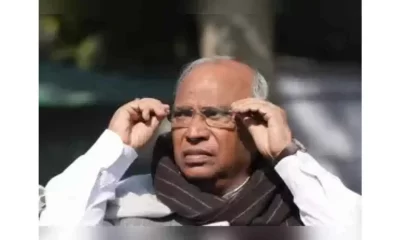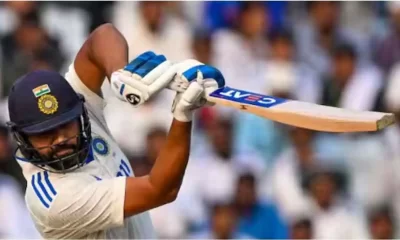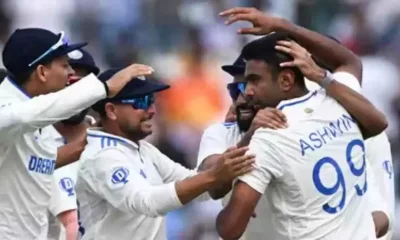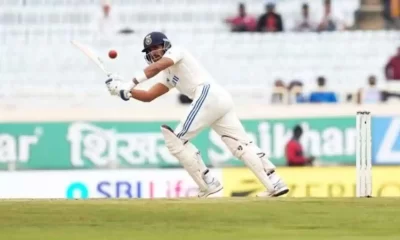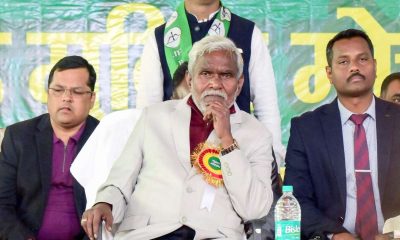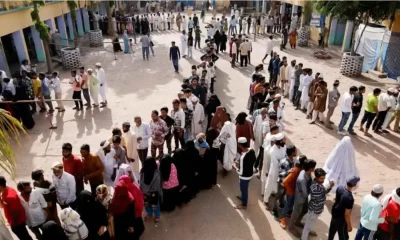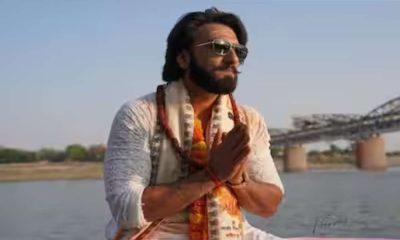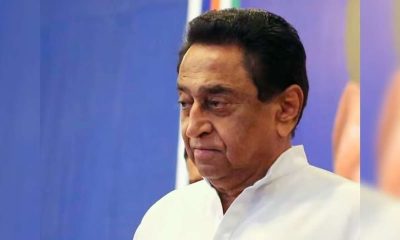Editorial
Taking The Law To The People

Why July 23 was a proud day for us
July 23, 2016, was a proud day for the India Legal family. The magazine was part of the launch of a unique public service initiative which brought a governor, the chief justice, sitting judges of the high and lower judiciary, journalists, top lawyers including former president of the Supreme Court Bar Association, senior bureaucrats, and law students under one roof.

ILRF Conclave “ACCESS TO JUSTICE” held in Ranchi
The occasion, starting from Ranchi, the capital of Jharkhand, was the first conclave sponsored by the India Legal Research Foundation (ILRF), partnered by India Legal magazine and APN-TV. Subject: “Access to Justice.” This will be a year-long theme for similar conclaves ILRF is planning for all major cities across India to promote grassroots involvement in making the fruits of justice to all those who are given this basic right within our democracy but often cannot even pick the low-hanging fruit.
When I first joined India Legal as its editor, little had I imagined that one day I would be addressing the legal community directly as I did at the conclave rather than through my laborious pen.
When I returned from the US many years ago as Editor of India Today, a friend who had just attended a court hearing seemed very depressed. He shook his head and said, “date mil gayee.” (“I’ve got a date”) I was puzzled. In the West “date” means getting to meet and court a young lady who might become your lifetime partner. Of course as I learned in India this means your case has been postponed to some other indefinite date. I also learned that these delays in the judicial process were a sad flaw in our system of justice.
“Equal justice under law is not merely a caption on the facade of the Supreme Court building; it is perhaps the most inspiring ideal of our society. It is one of the ends for which our entire legal system exists… it is fundamental that justice should be the same, in substance and availability, without regard to economic status,” said Justice Lewis F Powell, Jr, US Supreme Court in 1976.
“Courts exist for the convenience of the litigants and not in order to maintain any particular system of law or any particular system of administration,” noted Justice MC Chagla, former Chief Justice of the Bombay High Court.
Their wisdom, and those of countless luminaries who have fought and argued passionately for the majesty of the Rule of Law, guides the editorial spirit of India Legal magazine and the conclave on “Access to Justice” organized by the India Legal Research Foundation.
India Legal magazine is now completing more than two years of publication as a revamped and relaunched fortnightly magazine. And there is plenty to commemorate and rejoice about.
At a time when the market wisdom was against launching new magazines and periodicals because of “commercial viability” problems, our well wishers Rajshri and Pradeep Rai—both journalists and lawyers —took a leap of faith. And their belief—as the growth and progress of the magazine has demonstrated—has been rewarded by success.
Our job was not to pander to fashionable market trends or infotainment but to persuade readers back into serious reading rather than just flipping through. The aim, in other words, was to transform a world of flippership into a universe of readership.
I believe that one measure of our success lies in how quickly we began to attract some of the finest writers, reporters and editors in the country—many of them legendary in their own lifetimes—to write for us.
Our very first issue with the cover story “How Did She Die” raised serious questions about Sunanda Pushkar’s death along with the first exclusive photographs of her dead body showing bruise marks. The story later went viral and her death is still under investigation.

India Legal magazine July 31, 2016
During the first event-packed, frenetic six weeks during which our fortnightly magazine was on the stands, the one question I was repeatedly asked is why we call it “India Legal”. Not that people didn’t like the title. They found it authoritative. They found it catchy and different. But they remain mystified by our choice when they read the contents and discover that the magazine is not simply a handbook or digest for the legal profession.
Precisely. And yet, members of the legal community who read it find it fits their niche reading needs. I write this not to wallow in self-praise but rather to suggest that India Legal was probably the right choice of a name. It is obvious that the magazine has mined a rich vein of readers’ interest. It has placed a niche perspective of the law within the wider ambit of a general readership. It has become a marketplace for the discussion and telling of all breaking stories and investigations within the perspective of their legal parameters. It’s to the credit of the unspoken wisdom of our constitution that we are a nation of laws and not man-made whimsies.
Take any major political, social or economic issue facing the nation or the world, research and write on it within the legal framework and you’ve got an India Legal story!
A word about Pradeep Rai, the President of India Legal Research Foundation, which drew inspiration from the magazine. Pradeep Rai is a many-faceted individual who has been able to link the legal profession with activism and human rights. Sensing a vacuum in this area—the lack of adequately-trained reporters and editors capable of transmitting and explaining the experience of law as it impacts the human condition, society and governance—he opted out of his practice for several years in the late 1990s to join various TV and news organizations and produced reports and commentaries which were unique and informative.

(L-R) Rajshri Rai, managing director, ENC, and Pradeep Rai, president, India Legal Research Foundation
This combination of law and journalism – he has a passion for both—led Pradeep to explore new depths and avenues over the last decade until he could build a bridge which would help him straddle both professions. The organization was actually started by his journalist wife Rajshri, an IIMC graduate and NDTV anchor, some family members and interns – with his pet magazine ventures, Views On News, and India Legal . Pradeep kept a strong distance from editorial decision making or interference though he was always available for advice on complex issues and helping reporters gain access to reliable sources. They were able to project the two magazines on a national footing only in early 2014 when the senior management hired a professionally-driven editorial staff with editors of national and international standing capable of guiding a team and drawing in some of the best known writers as contributors on a regular basis.

The sprawling ENC campus in Noida
The relaunch of the magazines went hand-in-hand with setting up the umbrella corporation—EN Communication Pvt. Ltd (ENC)—which included within its fold APN NEWS, a 24X7 Hindi channel which is a runaway success story in the Hindi heartland as well as Uttarakhand and Jharkhand.
Editorial independence and ability to scoop stories missed by the general media. India Legal and Views On News—which we are now developing into a daily website—between them provide wide coverage of the judiciary, the law, developments and trends in the media as well as governance and inside reports on the bureaucracy.
I will take the liberty to reproduce Pradeep’s Rai’s address to the gathering from the dais which included Governor Droupadi Murmu and Chief Justice Virender Singh.
“Your Excellency Governor Murmu; Your Honour Chief Justice Virender Singh; Your Lordships of the High Court of Jharkhand; Ladies and Gentlemen, I do not know how to express my joy and feeling of elation that such a distinguished congregation has gathered here today to pay respect to one of the greatest gifts of freedom and liberty endowed to us by our Founding Fathers—the Access to Justice.
“These may be simple sounding words. But their beauty and spirit lies in their very simplicity. Access is another word for the “right to entry,” or the “right to use.” Justice means fairness, impartiality, righteousness, even-handedness, fair dealing, honesty, integrity. I could go on and on. It is not for me to preach to this distinguished gathering, which day in and day out faces the formidable challenge of implementing this “right.” But simply to emphasize that it is from this juridical principle of natural justice that human beings can derive the moral ammunition to strive for what each individual craves day by day: A Life of Dignity.
“If I may be allowed to inject a personal note in this small welcoming note to all of you, I would like to state that the pursuit of these core values propelled me into the profession to which I am wedded. But most of us have a desire to go beyond limits of our vocation. We enjoy reaching for the stars! And it is in the course of this journey that ILRF or India Legal Research Foundation has taken birth.
“Many of you I am sure are aware that India Legal is the country’s only news conglomerate which serves as a unique platform focusing on a comprehensive and sweeping range of news, views, opinion and breaking stories from all Courts, the legal and judicial community through a network of magazines, TV channels, websites, and partnerships with prestigious colleges, their professors and students, like the National Law University, Delhi, NALSAR, and Jindal Global Law School.

TV monitoring stations at APN channel’s office in Noida
“Some of the leading lights of the judicial community have used our platforms to directly address the concerns of the judiciary. The participants have included former Chief Justices, Union Ministers for Law and Justice, and top Senior Advocates. My Honoured Guests and Colleagues, and Friends, I would now like to share a secret with you which has just been revealed to me by the top editorial team of the India Legal-APN family. APN News has recently launched the India Legal Helpline. It is a live call-in show in which ordinary people in need of proper guidance call our team of expert lawyers present in the NOIDA studio. I am told, it’s becoming one of the top TV shows. In this endeavor, we are being supported by our electronic media partner, APN News. The confidential news that the editorial team has allowed me to share with you is that they are now expanding into the realm of the English medium, by launching a new channel, India Legal Live.
“Today’s theme is very much a part of India Legal Research Foundation’s attempt of providing free and high quality legal services to those unable to afford legal help. This conclave is very much a part of that overall design by spreading the word and sensitizing all concerned through debate and interaction. It is also a celebration of the best of the past history of Ranchi, a part of our nation from where some of the wisest teachings spread across the world.
“This is a collective effort of TAKING THE LAW TO THE PEOPLE through the judiciary, the press and the legal fraternity. I do believe that in promoting social and constitutional causes, the “trickle down” theory can really work. Legal literacy, just as literacy about health and environment, is essential in strengthening civilized existence. And what better way for awareness to spread than “trickling down” into the mind space through the media and media-related events such as this present one?
“But, unfortunately, we have not been successful in ensuring that the fruits of development reached the lower-most strata of society. Poverty, illiteracy high rates of infant and maternal mortality, adverse gender ratio, unemployment, poor health-care system, caste, gender and religion-based prejudices and incidences of farmers’ suicides are issues that have remained as blots on our democracy.
“The framers of our Constitution were fully aware of the fact that justice is the greatest interest of man on earth. In their arduous quest for justice during National freedom Struggle they felt the prime importance of framing a Constitution for a free nation where justice for its citizen becomes easily accessible.
“The notion of ‘access to justice/ in our Constitution is placed on the high pedestal of fundamental rights. Access to justice is an inbuilt content of Article 14 which guarantees equality before the law and equal protection of laws. If in accessing justice, the common man has to encounter barriers and impediments, the equality clause in our Constitution becomes no more than a promissory note! A Paper Tiger!
“So in a judiciary where access in gagged and the institutions which are responsible do nothing to remove the obstacles, such a system ceases to be an independent judicial system. As early as in 1956, the Apex Court while interpreting Article 14 decided that our constitution is not meant only for the elite, but it is also for “the butcher, the baker and the candlestick maker. “ In subsequent years the Apex Court incorporated access to justice in Article 21 by various judicial interpretations. Articles 22(1) and 22(2) specifically ensure the ‘access to justice for persons who are arrested and detained in custody. The right to move the Apex Court for enforcement of Part III right by appropriate is a guaranteed fundamental right under Article 32.
“Under our constitutional dispensation, sovereignty vests in the people. So we the people of India can legitimately boast of a people oriented jurisprudence with unimpeded access to justice. However, there is much more to be done in this regard and India Legal Research Foundation (ILRF) has taken the initiative and embarked upon this arduous journey and an onerous task with clear vision of realizing the first Mission of Mahatma ‘to wipe every tear from every eye’”.

-
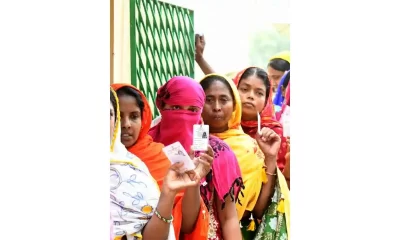
 2024 Lok Sabha Elections13 hours ago
2024 Lok Sabha Elections13 hours agoPrime Minister Narendra Modi urges citizens to vote in record numbers as voting for first phase of Lok Sabha elections begins on 102 seats across India
-
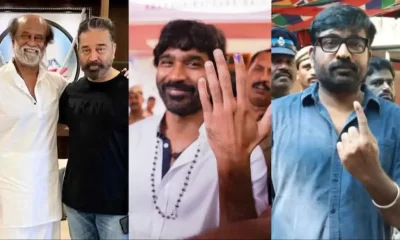
 2024 Lok Sabha Elections11 hours ago
2024 Lok Sabha Elections11 hours agoKamal Haasan, Rajinikanth, Vijay Sethupathi, Dhanush vote in Chennai
-
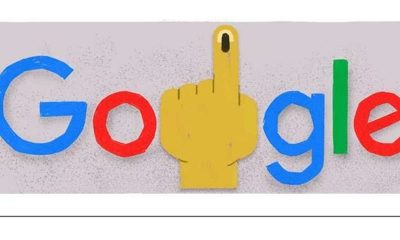
 2024 Lok Sabha Elections12 hours ago
2024 Lok Sabha Elections12 hours agoLok Sabha elections 2024: Google Doodle marks the start of polls with index finger voting symbol
-
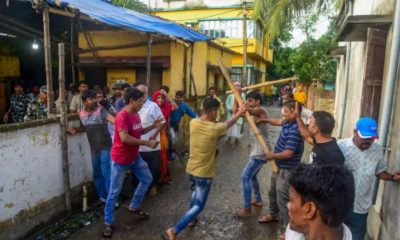
 2024 Lok Sabha Elections11 hours ago
2024 Lok Sabha Elections11 hours agoLok Sabha elections 2024: TMC, BJP workers clash in West Bengal’s Cooh Behar ahead of voting
-
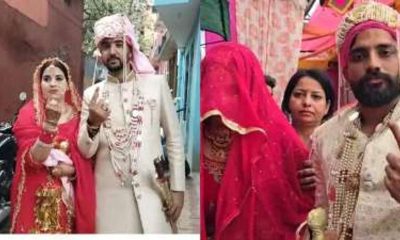
 2024 Lok Sabha Elections10 hours ago
2024 Lok Sabha Elections10 hours agoLok Sabha elections 2024: Newly married couple cast vote in Jammu and Kashmir’s Udhampur, video goes viral
-

 Entertainment8 hours ago
Entertainment8 hours agoDo Aur Do Pyaar social media review: Social media users say Vidya Balan, Pratik Gandhi deliver standout performances in this adorable film
-
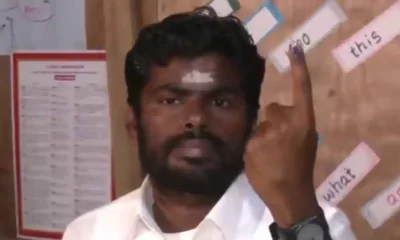
 2024 Lok Sabha Elections10 hours ago
2024 Lok Sabha Elections10 hours agoTamil Nadu BJP chief K Annamalai says party will sweep Karnataka and emerge victorious in Telangana, accuses DMK, AIADMK of influencing voters in Coimbatore
-
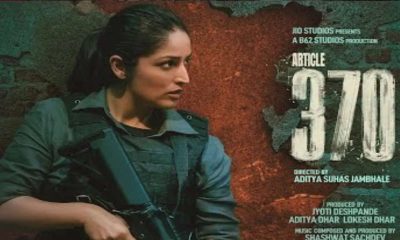
 Entertainment9 hours ago
Entertainment9 hours agoYami Gautam starrer Article 370 releases on Netflix today
